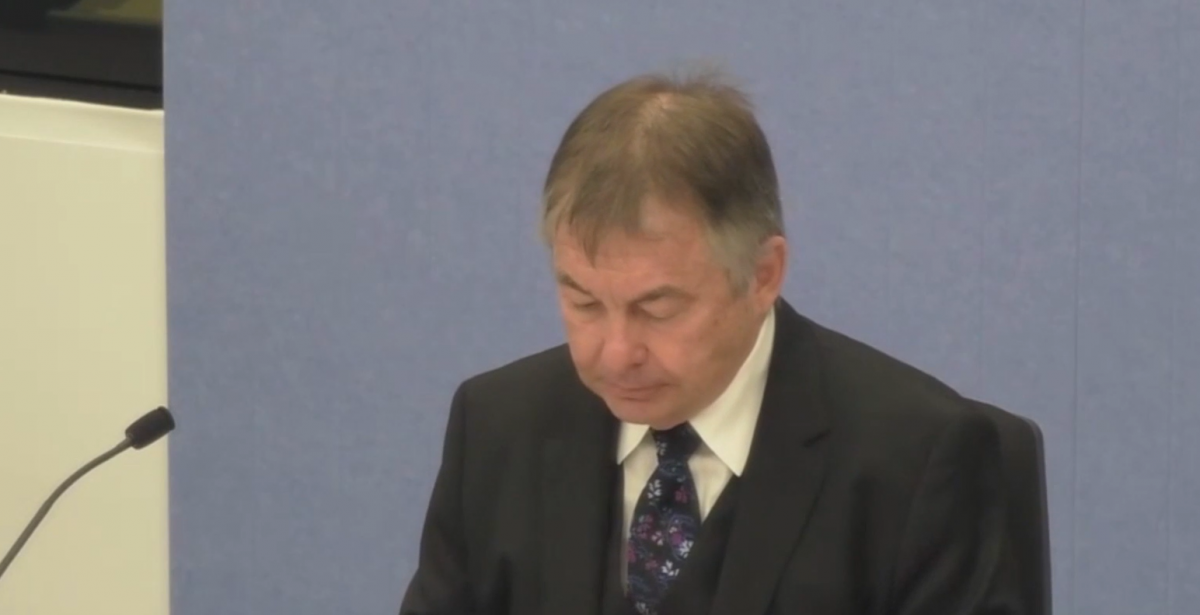
Board of Inquiry chair Walter Sofronoff said the media had broken his trust in its reporting of the hearings. Photo: Screenshot.
Board of Inquiry chair Walter Sofronoff KC has criticised media organisations for giving prominence to “defamatory, scandalous” statements from the hearing into the Bruce Lehrmann trial, in a move that he has called a “mean and cruel” act of “low journalism”.
Mr Sofronoff told the inquiry he had learnt to trust journalists over many years of working with them, but his “trust has been damaged today”.
The stories were brought to the attention of the inquiry on Wednesday (10 May) by Mark Tedeschi KC, who represents Director of Public Prosecutions Shane Drumgold. Mr Sofronoff had, as a result, considered restricting the public’s access to the inquiry.
“When people’s health and safety is being put in issue then I have to give serious consideration to closing down the public hearings, restricting the evidence and letting the public know in due course in my report,” he said earlier that day.
Mr Sofronoff told the inquiry that these statements formed only a “small mosaic piece” of the evidence that had been shared with the public within documents exploring the DPP and the police’s handling of the Lehrmann trial.
Highlighting these small pieces of information “does not represent a fair report” and could constitute contempt of inquiry, he said.
A non-publication order was placed on some documents that were shared with the public on Tuesday (9 May) as a result of the media coverage that focused on cherry-picked statements with little relevance to the inquiry or the case itself.
A media lawyer spoke at the Board of Inquiry that afternoon in response to the non-publication order and suggestions that the public’s access to the hearing could be restricted.
Speaking on behalf of five media organisations – News Corporation, Nine, Seven, ABC and Daily Mail Australia Pty Ltd – Justin Quill said, “these documents and the matters contained within them are crucial and key issues in this whole inquiry” and therefore should be available to the media and, by extension, the public.
“It’s bordering on impossible to properly understand, and therefore properly convey to the public, and for the public to properly understand, what it is that this inquiry is considering and looking into [without the documents],” Mr Quill said.
“The content of these documents demonstrate … the breakdown of the relationship of trust between the DPP and the AFP.
“The inquiry ought to proceed on the basis that there will be fair reporting.”
After Mr Quill’s submission to the inquiry, Mr Sofronoff concluded that it was necessary to continue broadcasting the inquiry and sharing necessary documents with the public to ensure they could fully understand the importance of the case. He called it a “precious opportunity” for the public to assess all of the relevant and significant evidence involved.
“The whole of the content is necessary to understand the issue that’s arisen,” he explained.
“The community, as well as journalists watching the live stream … would be unable to understand the oral evidence of witnesses if I declined to open up the relevant documents.”
He acknowledged the important role that “the work of reputable journalists” play in the reporting of cases like this that are in the public interest.
“Without that kind of engagement … with journalists and without making the oral evidence and documentary evidence available,” the community would have to wait until Mr Sofronoff’s report, which is not due to be released until 31 July.
Nevertheless, Mr Sofronoff reiterated the damage that “‘scandalous” reporting and misuse of evidence shared with the public can be highly damaging to individuals involved in a trial.
“One of the people reading the headline is Ms Higgins,” he said.
“Two young people are at the centre of this matter, Brittany Higgins and Bruce Lehrmann … each of them now has a burden to bear … they don’t have to tolerate being defamed or maligned.”














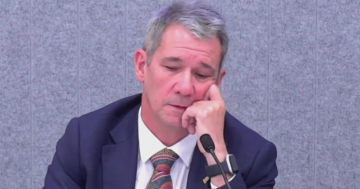
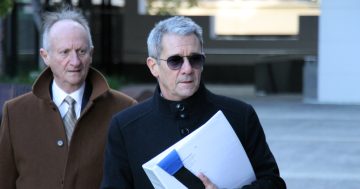
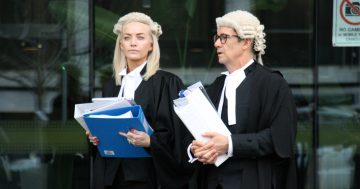

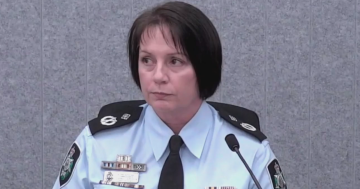

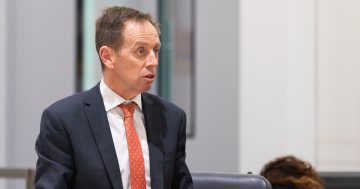

My daughter, Canberra born and bred, has performed for free in Lakespeare for many times. She even… View